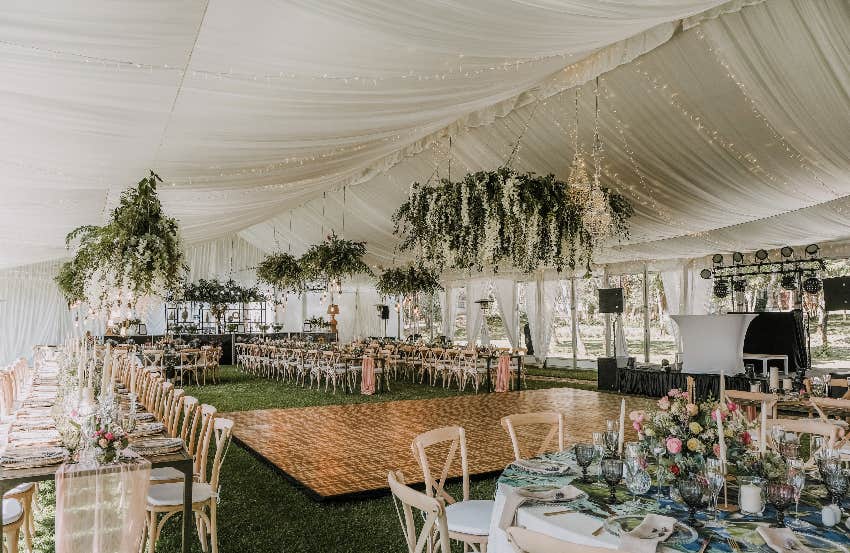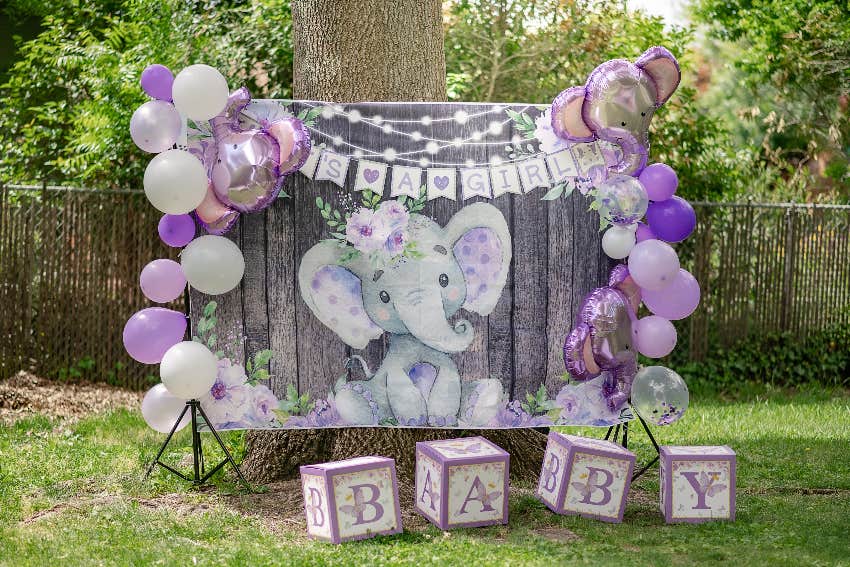It's Hard For Me To Summon Much Enthusiasm For Weddings Anymore — 'Our Society Celebrates Brides, But Never Wives'
You're getting married! Congrats...?
 Kateryna Onyshchuk | Canva
Kateryna Onyshchuk | Canva Editor's Note: This is a part of YourTango's Opinion section where individual authors can provide varying perspectives for wide-ranging political, social, and personal commentary on issues.
When my male coworker recently proposed to his girlfriend, I wanted to feel happy for them. Of course, I sent my requisite CONGRATS! on Slack, studded with champagne and confetti emojis.
Recently, I’ve tried to muster the same enthusiasm when I heard that someone's getting married.
They all seem so happy about their impending nuptials, and I don’t want to rain on their parade. But truth be told, I find it hard to get too excited when I learn that a heterosexual couple has gotten engaged.
Here’s what I want to tell the soon-to-be grooms: I hope you listen. I hope you try to understand. I hope you don’t dismiss her. I hope you see and value her labor. I hope you take the initiative to learn and grow.
And what I want to tell the soon-to-be brides: I hope you stand up for yourself. I hope you don’t lose yourself. I hope you don’t let resentment quietly grow and fester. I hope you don’t give up too much. I hope you don’t feel compelled to do it all.
I find it strange that even amongst family and friends, we rarely have these conversations.
Instead, we fawn over diamond rings and floor-length dresses. We ask for wedding details — dates, locations, guest lists.
We look on as couples and their families spend exorbitant amounts of money — on average, 63% of the median annual U.S. household income — for a half-day event, as though a so-called fairytale wedding is more likely to lead to a happily-ever-after.
 Jamaan / Shutterstock
Jamaan / Shutterstock
When I got married, over 16 years ago, I wasn’t all that into being a bride.
My philosophy was that the less time I spent planning our wedding (emphasis on our), the more I would enjoy the actual event.
Yes, I wordlessly took on the role of planner, just as my husband-to-be wordlessly took on the role of somewhat disinterested consultant — the first of many gendered roles we would wordlessly fall into over the years to come. But I could have cared less about the weight of the cardstock that the invitations were printed on or the colors of the flowers that made up the table centerpieces.
I felt like I was supposed to care. Even though I’d never been one to daydream about my future nuptials, to worship diamonds, or to drool in front of wedding dress displays, I was told by more than one woman that this was a seminal life event, a chance to celebrate our love and commitment with our closest friends and family — along with the 80 other people who had somehow made it onto the guest list.
Why, I wondered then, and wonder more acutely now, do people get so giddy over weddings? And in an era where women aspire to so much more than marriage, in an era where half of the married women out-earn or earn the same amount as their husbands, why is the wedding supposed to mean so much to the bride?
Don’t get me wrong — weddings should, and do, mean something.
Mine was a three-day affair at a cluster of rustic cabins near Mt. Shasta. Because I hadn’t spent the previous nine months of my life obsessing over frivolous details, and because I wasn’t pressuring myself to perfectly realize some fantasy I’d entertained since girlhood, I actually managed to enjoy myself.
It’s not that I’m against celebrating a couple’s commitment to one another. I just wish that as a society, we could speak more honestly about the benefits and trade-offs of marriage, instead of continually pushing notions and expectations around “true love” and “wedded bliss.”
And I especially wish that we could speak more honestly about the benefits and trade-offs of marriage for heterosexual women. While the wedding industry rakes in $3 billion annually, the evidence of unhappily married heterosexual women is everywhere. About 69 percent of divorces amongst heterosexual couples are initiated by women, and that number rises to a staggering 90 percent for college-educated women. What’s more, these gender discrepancies do not apply to non-marital breakups.
To be clear, there are marital benefits and trade-offs for people of all genders and sexual orientations. But while single and LGBTQ+ women are busy battling the patriarchy “out there,” the married heterosexual woman finds herself facing an uphill battle in her own home. It’s a battle waged alongside, but sometimes against, the person she calls her partner.
I’m not by any means saying it’s a more difficult struggle — it’s just one that we rarely talk about. Lurking behind the veils and the bridal bouquets are all the bitter truths we leave unsaid.
We live in a culture that celebrates brides but doesn’t celebrate wives.
That tells girls they can do anything they want to do, then saddles them with second shifts after they tie the knot. We live in a culture where gender inequity is still the default, and any heterosexual woman who isn’t okay with that must find the time between her first and second shifts to unravel years of socialization.
If you introduce kids into the mix, as so many married couples do, the uphill battle becomes that much steeper. We apply the same sense of collective denial to our celebration of pregnant women as we do to our celebration of brides. We throw elaborately tedious baby showers, obsess over genders and trimesters, and praise that pregnancy glow.
 Chernova Yuliia / Shutterstock
Chernova Yuliia / Shutterstock
Then the baby is born, and the woman recedes into the shadows.
Doctors no longer inquire after her health, coworkers grumble when she slips away to pump or signs off to pick up the baby from daycare. Well-intentioned male partners try to help, but with the all-too-common discrepancies in maternity and paternity leaves, most women have already, without really trying, slipped into the primary caretaker role.
And there is no time to talk about anything. No time to re-negotiate or re-imagine. A young mother’s attention is in a million places at once. No one’s attention is on her. These days, when I see a pregnant woman, my first response isn’t giddiness. Instead, I think: I hope she finds herself again.
Why do we continue to fawn? Why do we obsess over wedding dresses and due dates, when we should be having conversations about the difficult journeys that women face after weddings and births?
Is it because brides and pregnant women exude radiance because they symbolize beginnings and all the associated hope that comes with them? Is it because we all cling to our hopes that things have changed, that this particular woman’s journey might be different? That she’ll find everlasting love and appreciation?
That she’ll make it through her childrearing years with her sense of self intact? That she’ll be the one who “does it all,” who effortlessly balances career and family with the help of a supportive, and still attractive, partner who washes dishes and volunteers for the PTA and can recite the grocery list on demand?
Society still relentlessly markets marriage and motherhood to women and we still intuitively associate a woman’s worth with her marital and maternal status.
I’m sure the answer is all of the above. But if, as women, we could bring ourselves to be more honest with each other — and with ourselves — perhaps we would be less likely to struggle alone behind closed doors; to quietly contend with missed expectations, simmering resentments, and dashed hopes; and to constantly wonder why the life we’re living only vaguely resembles the life we were sold.
Kerala Taylor is an award-winning writer and co-owner of a worker-owned marketing agency. Her weekly stories are dedicated to interrupting notions of what it means to be a mother, woman, worker, and wife. She writes on Medium and has recently launched a Substack publication Mom, Interrupted.

